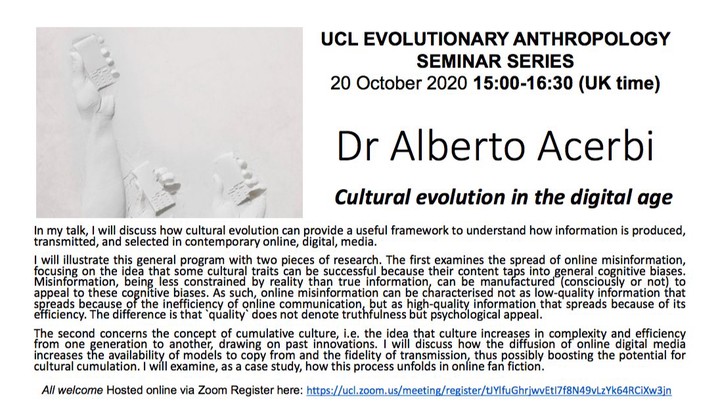Cultural evolution in the digital age

Abstract
In my talk, I will discuss how cultural evolution can provide a useful framework to understand how information is produced, transmitted, and selected in contemporary online, digital, media. I will illustrate this general program with two pieces of research. The first examines the spread of online misinformation, focusing on the idea that some cultural traits can be successful because their content taps into general cognitive biases. Misinformation, being less constrained by reality than true information, can be manufactured (consciously or not) to appeal to these cognitive biases. As such, online misinformation can be characterised not as low-quality information that spreads because of the inefficiency of online communication, but as high-quality information that spreads because of its efficiency. The difference is that quality does not denote truthfulness but psychological appeal. The second concerns the concept of cumulative culture, i.e. the idea that culture increases in complexity and efficiency from one generation to another, drawing on past innovations. I will discuss how the diffusion of online digital media increases the availability of models to copy from and the fidelity of transmission, thus possibly boosting the potential for cultural cumulation. I will examine, as a case study, how this process unfolds in online fan fiction.